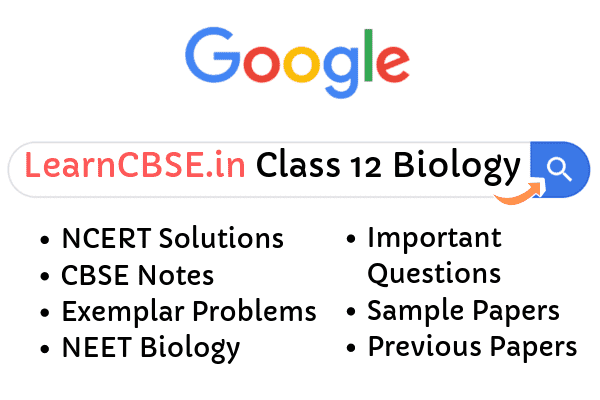NCERT Solutions for Class 12 Biology : Biology may seem to be easy but sometimes it might get tough. The national council of education and training (NCERT) has set a curriculum for schools which follow the central board of secondary education (CBSE). NCERT solutions have been provided below to aid the students with answering the questions correctly, using a logical approach and methodology. The solutions provide ample material to enable students to form a good base with the fundamentals of the subject.
NCERT textbooks are prescribed by CBSE as the best books for preparation of the school as well as board examinations. The textbooks are deemed as more than enough, without any aid from other refreshers. The solutions are designed keeping in mind the language and the simplicity of the explanations that are given in the NCERT textbooks. Not just the board and school examinations, NCERT textbooks are known to play a very important role in JEE and NEET.
NCERT Solutions for Class 12 Biology [Latest Updates For 2023-24]
Several important concepts like Reproduction, Inheritance, Evolution, Food Production, Biotechnology, Ecosystem, biodiversity, etc are explained precisely in the NCERT class 12 biology textbook with good diagrams for better understanding of teachers as well as students so that their basics are clear from the very beginning and thus helps them in scoring good marks in boards exam.
NCERT Solutions for Class 12 Biology (2023-2024)
- Chapter 1 Reproduction in Organisms
- Chapter 2 Sexual Reproduction in Flowering Plants
- Chapter 3 Human Reproduction
- Chapter 4 Reproductive Health
- Chapter 5 Principles of Inheritance and Variation
- Chapter 6 Molecular Basis of Inheritance
- Chapter 7 Evolution
- Chapter 8 Human Health and Disease
- Chapter 9 Strategies for Enhancement in Food Production
- Chapter 10 Microbes in Human Welfare
- Chapter 11 Biotechnology:Principles And Processes
- Chapter 12 Biotechnology and its Applications
- Chapter 13 Organisms and Populations
- Chapter 14 Ecosystem
- Chapter 15 Biodiversity and Conservation
- Chapter 16 Environmental Issues
